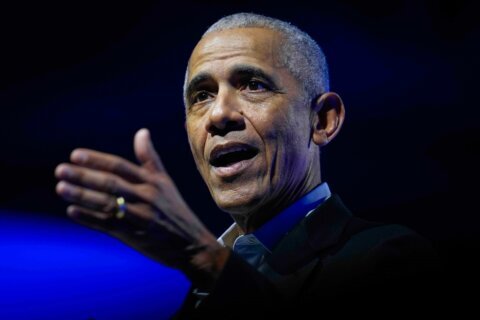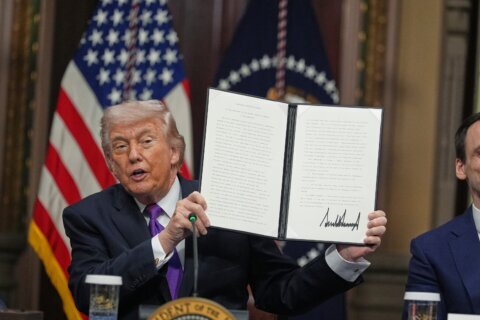This article was reprinted with permission from Virginia Mercury.
For Virginians who spend hundreds of dollars on tolls each month, relief could be on the horizon — if lawmakers can stomach the price tag.
A proposal to ease toll burdens for frequent drivers and low-income residents cleared a key hurdle in the state legislature this week, as a House Transportation subcommittee advanced the measure for further review.
House Bill 2368, sponsored by Del. Candi Mundon King, D-Prince William, would grant free toll rides to Virginia drivers using an electronic toll device once they hit $200 in monthly charges. Additionally, it would waive tolls for those receiving Temporary Assistance for Needy Families (TANF) benefits.
King, whose district includes approximately 42,000 disabled veterans, said the measure would ease the financial strain on commuters who often pay between $25 and $65 each way to travel roughly 29 miles between the Pentagon to Dumfries.
“If you’re a Virginia resident, you’re paying taxes in Virginia, you’re doing everything that you’re supposed to do, and then [you are] paying in perpetuity to ride down [your] own roads, it’s just getting to the point with the high cost of living where it’s a burden for people,” King said.
To prevent abuse, the bill would prohibit drivers from sharing transponders to trigger the toll cap and claim free rides.
But while the plan offers financial relief for commuters, it comes with a hefty price: at least $110.4 million annually, according to the Department of Planning and Budgeting. The subcommittee recommended sending the bill to House Appropriations, where lawmakers will weigh the financial implications — particularly how the cost will be split between private and state toll facilities.
State transportation officials warn that HB 2368 could threaten existing contracts with the Federal Highway Administration and private toll operators, potentially forcing toll hikes on all drivers to cover lost revenue.
The department’s fiscal analysis cautioned that a reduction of toll revenue could make it harder for the state and private entities to meet debt obligations tied to high-occupancy toll (HOT) and high-occupancy vehicle (HOV) lanes.
The debate over Virginia’s toll roads isn’t new. Last summer, the Joint Legislative Audit and Review Commission (JLARC) reviewed the state’s public-private transportation partnerships, which allow private companies to manage and profit from toll roads under state agreements. These contracts give operators control over access and pricing, with rates based on factors such as vehicle type, weight, and axle count.
During Tuesday’s hearing, Rena Hicks, executive director for Freedom Virginia, was the lone speaker in support of the bill. She urged lawmakers to advance the measure, accusing corporations of “price gouging” commuters traveling to work and school.
Opponents, including toll operator Transurban, argued that the bill would disrupt existing financial agreements.
David Skiles, a lobbyist for Transurban, noted that the legislation would certainly impact the comprehensive have private concessionaires has with the Commonwealth, but also could impact the current financing for critical infrastructure projects including the Long Bridge and the Silver Line Metrorail expansion projects in Northern Virginia, both of which rely on toll revenue.
King acknowledged the complexities of the funding model but pushed back on concerns that the bill is unworkable.
“This is complicated, but I believe that if a company that can scan my license plate and send me a bill without me ever giving them any information can certainly figure it out,” King said.
However, Del. Terry Austin, R-Botetourt, argued that Virginia has a legal obligation to uphold its contracts with private toll operators — and that toll users, not taxpayers, should foot the bill.
“We’ve entered a contract here, we have an obligation and if people use that road, in my opinion, [they] are the people who should have to pay for it, not everyone within the Commonwealth,” Austin said. “I appreciate you bringing the bill, the compassion for you and everyone who lives up there, it’s tough to get around. So trust me, I know that.”







